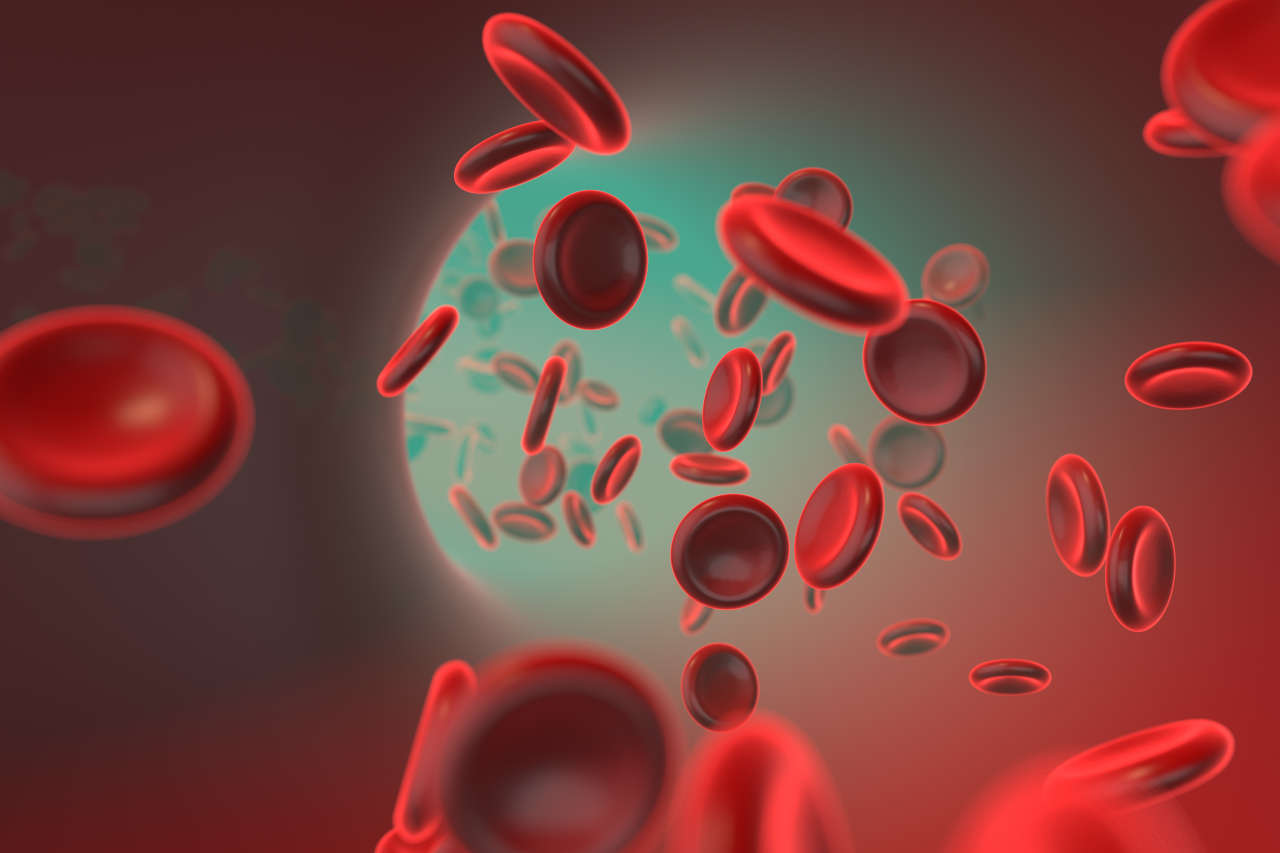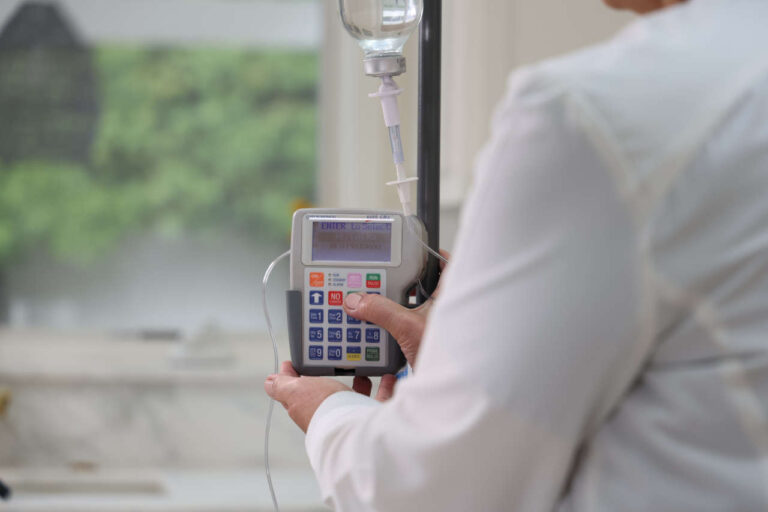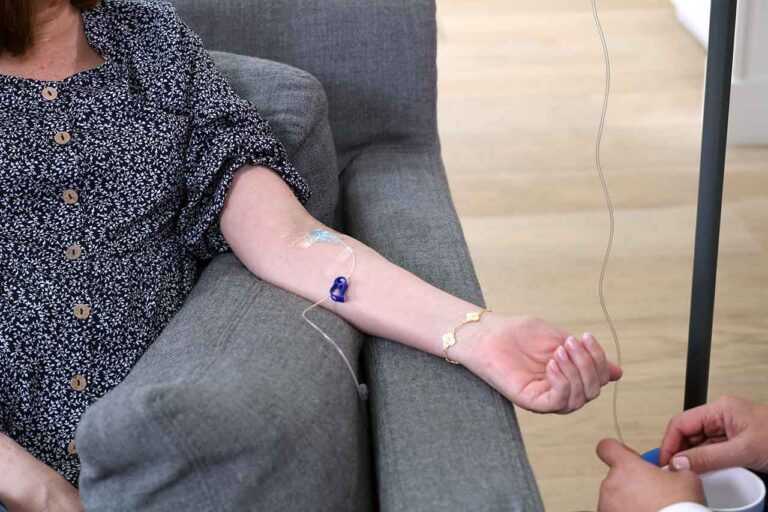
Though unsupported by large human trials, IVIG for autoimmune hemolytic anemia may be an option in severe, life-threatening cases and recurrent or chronic (long-term) disease.
Get IVIG Prior Authorization
Understanding Autoimmune Hemolytic Anemia
Autoimmune hemolytic anemia (AIHA) is a rare immune disease. Severe AIHA can be life threatening.
Estimates suggest 1 to 3 cases per 100,000 people each year [1].
Individuals with this condition don’t have enough red blood cells (RBCs) in their blood. AIHA occurs when the immune system fails to recognize RBCs and attacks them, leading to their early death.
RBCs stay in the body for about 120 days. However, autoimmune hemolytic anemia causes the body to remove RBCs within a few days.
Anyone, irrespective of their age or sex, can develop AIHA. However, it’s more common in women. In about half of the cases, the exact cause is unknown (idiopathic autoimmune hemolytic anemia). In others, it may be caused by lupus, lymphoma, or certain medicines.
The two main types are:
1. Warm AIHA
In this type, antibodies (proteins directed against RBCs) react with red blood cells at normal body temperature, 98.6°F. This type of AIHA is more common, accounting for about 90% of all cases.
2. Cold AIHA
Cold AIHA is also known as cold agglutinin disease (CAD). In this type, cold-agglutinin antibodies attack red blood cells at temperatures between 32° and 39.2°F.
Autoimmune Hemolytic Anemia Treatment Options: Where Does IVIG Fit?
There’s a lack of clearly defined treatment guidelines for managing autoimmune hemolytic anemia. Available treatment options rely primarily on small studies, case reports, and expert experiences and recommendations.
The first line of treatment for AIHA is steroids (along or with IVIG).
Steroids and RBC transfusion are the first-line treatment for warm autoimmune hemolytic anemia. Steroids rarely benefit people with cold AIHA. First-line treatment for cold AIHA is a monoclonal antibody such as rituximab. Experts may also recommend high-dose IVIG and plasmapheresis; however, results may be unpredictable.
Splenectomy (spleen removal surgery) may also be a viable recommendation, provided the patient is eligible for surgery. If surgery isn’t possible or the patient relapses after spleen removal, IVIG may be considered.
IVIG may be used “off-label” for AIHA. Off-label drug use is when a healthcare provider prescribes a drug for conditions other than those mentioned in the prescribing information for the medication.
IVIG for Autoimmune Hemolytic Anemia: When It May Be an Option
IVIG for autoimmune hemolytic anemia may be an option in the following situations [2]:
- Recurrent or chronic (long-term) AIHA.
- When steroids alone don’t work, IVIG may be used as a second-line or adjunctive therapy.
- Your hematologist (blood disorder specialist) may consider IVIG for autoimmune hemolytic anemia in children who don’t respond to steroids, are steroid-dependent, or relapse following the initial response.
The “Guidelines on the Use of Intravenous Immune Globulin for Hematologic Conditions” don’t recommend routine use of IVIG for acute or chronic treatment of AIHA. According to the expert panel, IVIG may be an option (among others) for severe, life-threatening AIHA [3].
Recommendations from the “First International Consensus Meeting 2020” state that IVIG (with or without plasma exchange) can be considered only in severe and life-threatening cases requiring repeated transfusions [4].
Your hematologist may consider IVIG for autoimmune hemolytic anemia if you have [5]:
- Hemolytic crisis (rapid loss of RBCs)
- Sepsis (a life-threatening condition caused by the immune system’s extreme response to infection)
- An underlying autoimmune disease or primary immunodeficiency
Get IVIG Copay Assistance
Speak to a SpecialistIVIG for Autoimmune Hemolytic Anemia: What’s the Mechanism of Action?
The exact mechanism of action is unknown.
A dose of 2 g/kg body weight (0.4 g/kg day for 5 days or 1 g/kg for 2 days) may help prevent RBC breakdown by suppressing the immune system. IVIG may help your body remove the RBC-destroying antibodies.
IVIG for Autoimmune Hemolytic Anemia: How Effective Is This Therapy?
Results are mixed and conflicting.
For example, according to researchers from the Department of Pediatrics, Division of Hematology/Oncology at the Baylor College of Medicine, IVIG is ineffective in AIHA [6].
Likewise, researchers of a 2015 study say that IVIG doesn’t improve treatment outcomes in individuals with AIHA. Also, they found no difference in relapse rates between participants who received IVIG and those who didn’t receive IVIG [7].
On the other hand, according to a 2024 study, IVIG (in addition to standard of care) may be used as a rescue therapy in adults with severe AIHA [8].
Likewise, IVIG (0.4–0.5 g/kg for 5 days) may benefit children with AIHA [2].
In a 2019 case report, a 25-year-old African American woman was successfully treated with prednisone, IVIG, and bortezomib. According to the researchers, she has been in remission (a period of a decrease or disappearance of symptoms) since the completion of therapy [9].
IVIG May Be Considered in Emergencies
IVIG can be an option for emergencies, but there’s little solid evidence to support its use. Other options include:
- High-dose intravenous methylprednisolone
- Plasma exchange
- Emergency splenectomy
- Partial splenic embolization
IVIG for Autoimmune Hemolytic Anemia: Limitations of Use
Several factors can limit the use of IVIG for autoimmune hemolytic anemia, such as:
- Unpredictable and transient treatment response
- High cost
- Lack of large human trials and universally accepted treatment guidelines
IVIG for Autoimmune Hemolytic Anemia: What Are the Side Effects?

Side effects can include:
- Systemic infusion reactions (fever, chills)
- Headache
- Fatigue
- Back pain
- Nausea
- Acute kidney failure (rarely)
Ask About IVIG Home Infusion
IVIG for Autoimmune Hemolytic Anemia: Frequently Asked Questions
How does IVIG work in hemolytic anemia?
Researchers have yet to understand the exact mechanism of action. Nonetheless, they believe IVIG may work by suppressing the immune system and increasing the removal of antibodies from the body.
What is the best treatment for autoimmune hemolytic anemia?
Corticosteroids, which are effective in about 80% of patients, are the primary treatment for warm AIHA [10].
Can IVIG cause anemia?
IVIG-induced anemia is often transient with no symptoms. However, in some cases, severe hemolytic anemia may occur. The risk is higher among those with known risk factors like non-O blood group, high total dose of IVIG, and underlying autoimmune disorder [11].
REFERENCES:
- Barcellini, Wilma, and Bruno Fattizzo. “Autoimmune Hemolytic Anemias: Challenges in Diagnosis and Therapy.” Transfusion medicine and hemotherapy : offizielles Organ der Deutschen Gesellschaft fur Transfusionsmedizin und Immunhamatologie vol. 51,5 321-331. 27 Aug. 2024, doi:10.1159/000540475
- Chandra, Dinesh, et al. “Autoimmune Hemolytic Anemia in Children.” Pediatric Hematology Oncology Journal, vol. 9, no. 4, Aug. 2024, pp. 255–64, doi:10.1016/j.phoj.2024.08.002.
- Anderson, David et al. “Guidelines on the use of intravenous immune globulin for hematologic conditions.” Transfusion medicine reviews vol. 21,2 Suppl 1 (2007): S9-56. doi:10.1016/j.tmrv.2007.01.001
- Jäger, Ulrich et al. “Diagnosis and treatment of autoimmune hemolytic anemia in adults: Recommendations from the First International Consensus Meeting.” Blood reviews vol. 41 (2020): 100648. doi:10.1016/j.blre.2019.100648
- Berentsen, Sigbjørn et al. “The choice of new treatments in autoimmune hemolytic anemia: how to pick from the basket?.” Frontiers in immunology vol. 14 1180509. 24 Apr. 2023, doi:10.3389/fimmu.2023.1180509
- Despotovic, Jenny McDade, and Taylor Olmsted Kim. “Cold AIHA and the best treatment strategies.” Hematology. American Society of Hematology. Education Program vol. 2022,1 (2022): 90-95. doi:10.1182/hematology.2022000369
- Fan, Junjie MD; He, Hailong MD; Zhao, Wenli MD; Wang, Yi MD; Lu, Jun MD; Li, Jie MD; Li, Jianqin MD; Xiao, Peifang MD; Lu, Ye MD; Chai, Yihuan MD; Hu, Shaoyan MD, PhD. Clinical Features and Treatment Outcomes of Childhood Autoimmune Hemolytic Anemia: A Retrospective Analysis of 68 Cases. Journal of Pediatric Hematology/Oncology 38(2):p e50-e55, March 2016. | DOI: 10.1097/MPH.0000000000000476
- Michel, M., et al. “Intravenous Immunoglobulin as a Rescue Therapy for Severe Adult Autoimmune Hemolytic Anemia: Results From a French Multicenter Observational Study.” American Journal of Hematology, vol. 99, no. 8, May 2024, pp. 1616–19, doi:10.1002/ajh.27361.
- Chineke I, Kagbo-Kue S, Aniekwena J, Rose M. Successful treatment of severe idiopathic mixed autoimmune hemolytic anemia with bortezomib and intravenous immunoglobulin. Int J Blood Transfus Immunohematol 2019;9:100046Z02IC2019.
- Zanella, Alberto, and Wilma Barcellini. “Treatment of autoimmune hemolytic anemias.” Haematologica vol. 99,10 (2014): 1547-54. doi:10.3324/haematol.2014.114561
- Kc, Ojbindra et al. “Intravenous Immunoglobulin-Associated Severe Hemolytic Anemia.” Journal of medical cases vol. 14,7 (2023): 227-231. doi:10.14740/jmc4126












